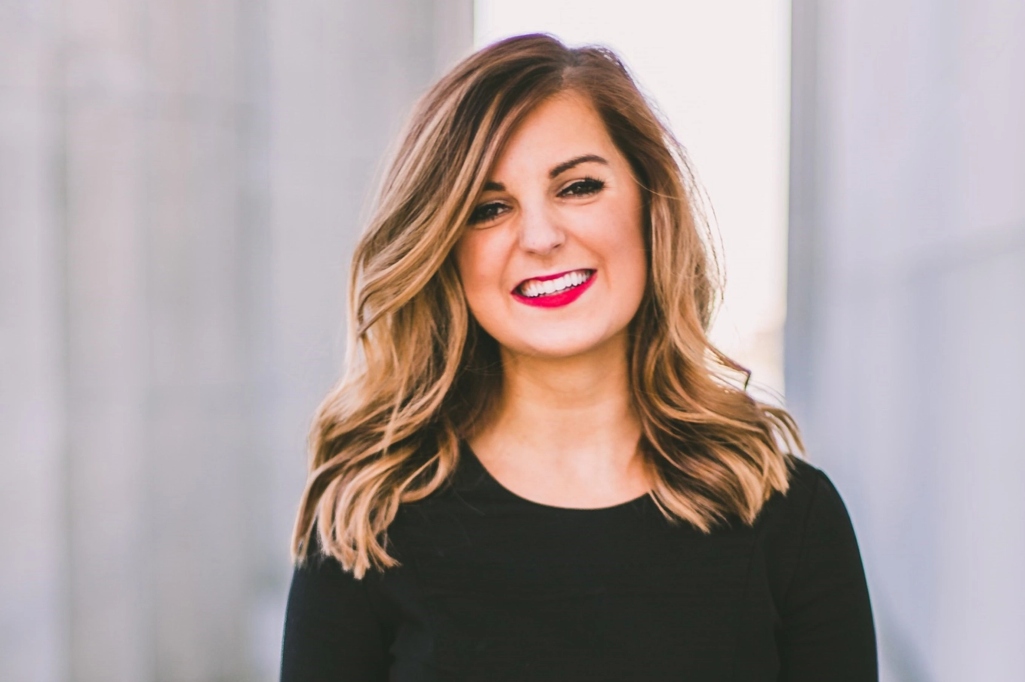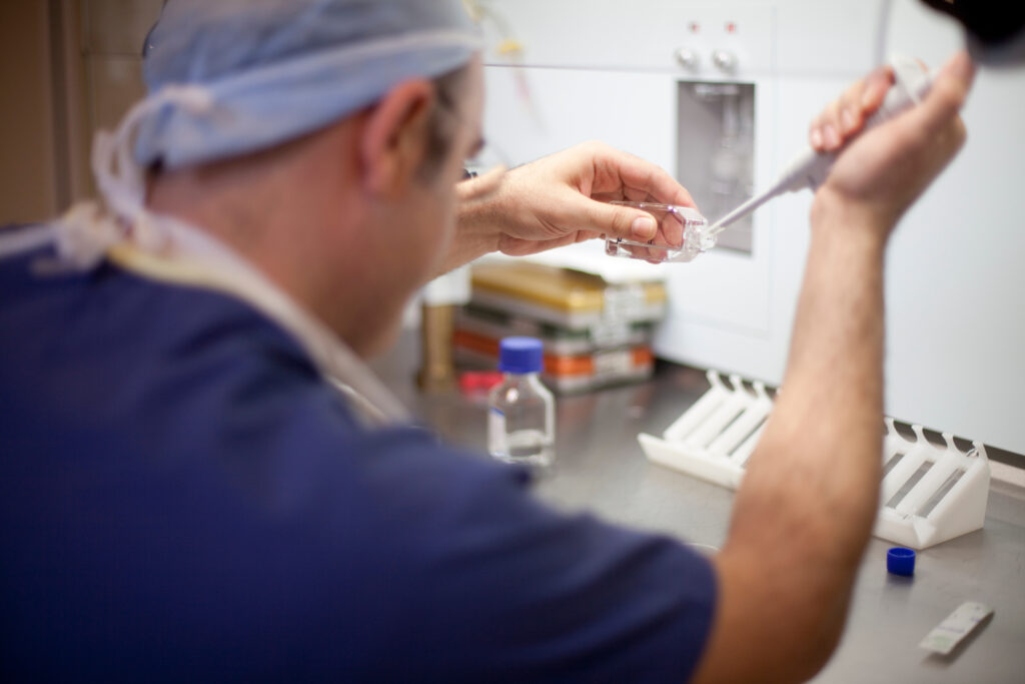Pregnancy care centers are critical to the pro-life work in the United States, creating safe and loving environments for women facing unplanned pregnancies. Laura Messick is the executive director of Portico, a 35-year-old pregnancy resource center in Murfreesboro, Tenn. Portico has been the recipient of two ultrasound machines placed by the ERLC’s Psalm 139 Project. Messick gives us an inside look at the work and the heart of those who serve the most vulnerable among us.
Q: Would you tell us about the scope of the work at Portico and what it is that you do there?
A: We see women who are pregnant and either don’t want to be or are experiencing fear. Many are undecided about what they want to do. Some of them are what we call “abortion vulnerable.” They may not have a good living arrangement or they may have someone who is pressuring them about abortion. So women like these come in to get a pregnancy test. When they’re eligible, they get the ultrasound. We like to do ultrasounds when they’re about seven weeks’ gestation.
We dispense prenatal vitamins, our nurses do a thorough wellness assessment, then we try to schedule them to come back at the optimal time to do the ultrasound and talk to them about their options. We give them a real explanation of what abortion is, what will happen at this stage of gestation and what the abortion would be like.
We really focus on educating women. We like them to see the development of the baby, which people don’t find out about in an abortion clinic. We give them a true picture, not in a morbid way or to scare them, but to just say, “Here’s what’s really going on. Be educated. Be informed before you let yourself make a decision that you cannot undo.” We try to encourage them to take their time to wait and not feel like they have to jump into a hasty decision. And then we tell them the resources that are available to them should they choose to carry the baby or to work an adoption plan.
We readily acknowledge these three things are before them: abortion, adoption and parenting. In doing so, we’re trying to point out to them that abortion is not the answer. We’ve had so many women come to us, post-abortive, that have said, “I just wish someone had told me. I just wish I had known.”
We also talk to them about the abortion pill and make sure they know if they were to take the first pill, they can still change their minds. There is a an abortion reversal procedure. And many, many children have been saved through abortion pill reversal.
If they choose to parent, we have a wonderful program called “Earn While You Learn,” where the mother and the father can learn life and parenting skills. And in participating in that program, they earn “Baby Bucks,” which is money they can spend in our boutique. It is beautiful, just like they’ve come in to shop at a store. They can buy gently used things, but everyone gets a new baby pack when the baby is born as our gift to them. They can shop from pregnancy up to the second year of the child’s life at the boutique. Every client that has been with us at least three times and then gets to her third trimester is eligible for a baby shower where she can get bigger things she needs or just things that she wants.
“So many women end up having abortions because they literally just don’t know.”
Laura Messick
We also teach a program called “Optimal Health for Me,” a sexual-risk avoidance education in our public schools for mainly sixth through ninth grade. We’ve been doing that for over 20 years. We’re teaching kids the skills that they need to develop good decision making. We encourage them to not be involved sexually until after marriage, and encourage them that they’re in season of life where they need to work on their character, plans and goals, which is now a countercultural message.
We also have a men’s program and a mobile ministry. The Psalm 139 Project gave us our mobile ultrasound machine. It goes out into the community across Middle Tennessee. Clients can walk into the mobile and get their pregnancy tests, ultrasound and counseling.
Q: Why are ultrasound machines so important to your ministry?
A: Ultrasound machines are important because women need to have all the information that’s available to them. They need to be given the power to make a truly informed decision. So many women end up having abortions because they literally just don’t know. They don’t know the humanity of their baby. To see that baby on an ultrasound is a powerful, moving moment that I believe every woman deserves to be able to have. So having that as a tool has been a wonderful blessing to us and to our clients. We’ve had so many stories and testimonials about the effectiveness of them. At this point, 15 years after we started offering ultrasounds, I cannot imagine our work without them.
Q: What is your community like? Can you describe your clients?
A: Murfreesboro is home to Middle Tennessee State University, which is the largest undergraduate university in the state of Tennessee. We do see a fair amount of college students. Most of our clients identify as “nonstudents,” although our biggest demographic, age-wise, is about 19 to 24. We also see young professional women. Murfreesboro is an upwardly mobile community. The majority of the clients that we have are single, but some are married as well.
Q: How do you see God at work through Portico?
A: We see God at work in so many different ways. People just have so many different needs, and we have the most amazing, compassionate client advocates. Some have been through abortion themselves and some just have a heart for these women. They’re all wonderful, compassionate ladies, and our clients really benefit from that. God works through them.
Q: For you personally, how does your faith inform your pro-life work?
A: I believe the foundational truth that we are all created in God’s image. When I was a 25-year-old, stay-at-home mom with my first baby, I became aware of late-term aborted babies that were discovered in dumpsters in California through a news program. When I saw that story, God just literally pierced my heart. And from that moment on – and I’m 64 now – I have really felt like it was my responsibility as a member of the body of Christ to speak the truth about life and about abortion, but not in an unkind way.
We have to speak to the church, especially. We cannot sit idly by and pretend like we don’t know what’s going on. Many have come to a place of real complacency and acceptance because abortion is a giant in the land, and we don’t feel that there’s anything we can do about it. But that doesn’t lessen our responsibility before the Lord to speak the truth and to speak up for these little ones who cannot speak for themselves. So we have to find very practical ways to really help people, not just rail against the darkness. That’s what Portico and the pregnancy center movement in our nation is all about. We say, “Let us show you a better way, and we’re going to help you through this.”
Q: How can we pray for ministries like yours, and how can we get involved?
A: Please pray that God will open doors up for us to see the clients that are out there that need to be seen. We are constantly fighting a cultural battle. There are forces that don’t like what we do, and so they want to undermine us. They want to mislabel us and spread things about us that are not true in order to keep women from coming in. When women come in, they receive love and care and mercy, which we are giving out in the name of Jesus. I pray frequently, “Lord, send the women today that are out there that need what Portico has to offer.”
Secondly, pray that abortion in our nation would no longer be the law of the land. I think everybody’s aware of what’s going on in the Supreme Court right now. So pray for pregnancy centers. There are almost 3,000 of them across the United States, and they’re all doing a vital and wonderful work. Numbers of abortions have actually continued to decline for many years now. And I think a lot of that is due to the presence and the strength of pregnancy centers in communities in the United States.
Q: How can people become involved with a pregnancy care center and their community?
A: Most pregnancy centers operate with volunteers. We are very volunteer-driven. We have four full-time and five part-time staff members for all of our programs and then a wonderful volunteer base. Many volunteers interact with the clients, but there are many other things that people can do. Our center has a “Plug into Portico” event that people can come to every other month to get introduced to everything that we do and learn how they can be involved. And we have a prayer team. Of course, we need people’s financial gifts, even a small monthly gift; it adds up. So in addition to all of those things, be a community advocate, talking about pregnancy care centers in your community and in your church.
(EDITOR’S NOTE – Jill Waggoner is content editor for the Ethics & Religious Liberty Commission.)


